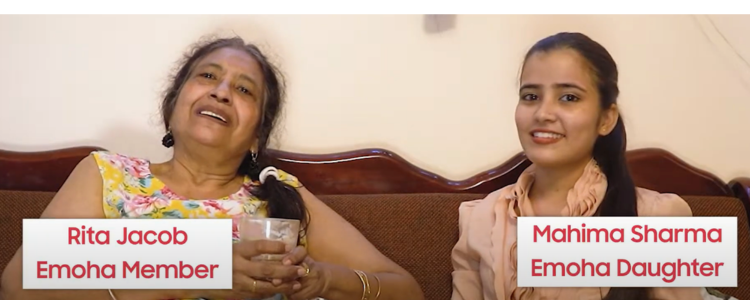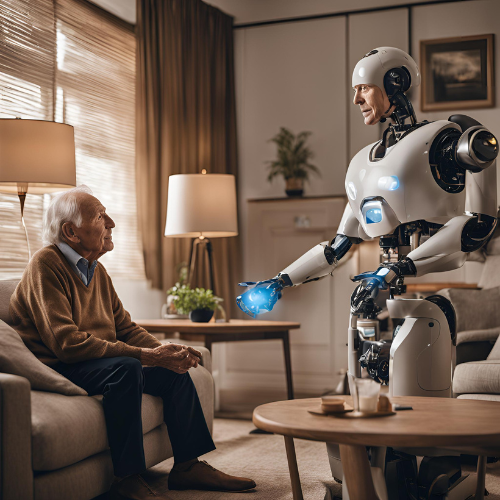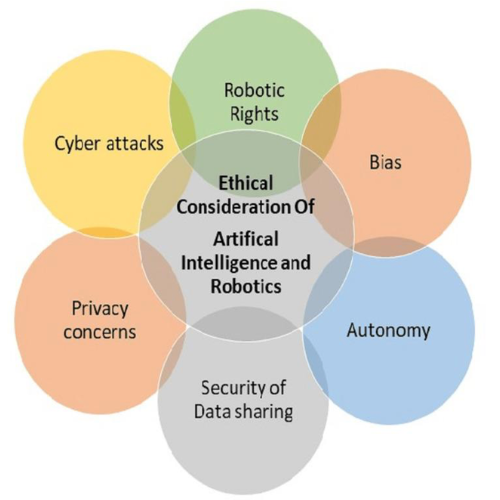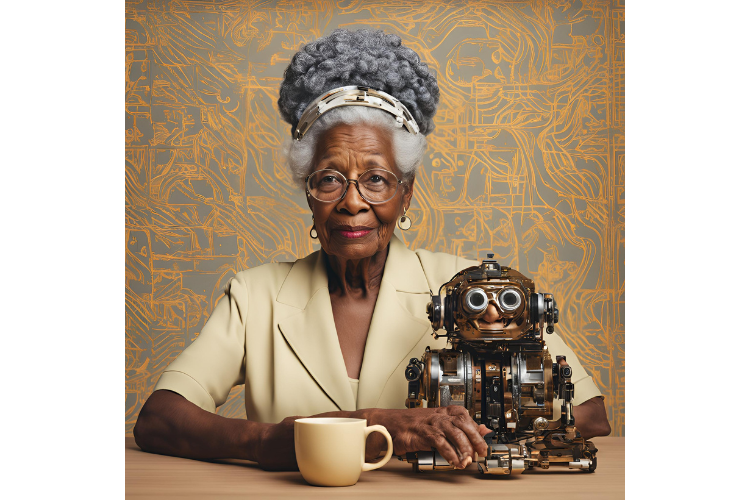By Kul Bhushan, Moodfuel
As caregivers struggle to balance work, family and life pressures, artificial intelligence offers thought-provoking solutions for senior connections
It's an unusual marriage proposal, isn't it – technology and the mental health of elders? There is this notion that aging people are not tech-savvy, but eventually many do become adopters.
Take my family as an example. My older relatives are well versed in using social networks, making video calls and sending voice messages to all of us.
Connectivity obviously is one of the benefits of technology for older people. Moreover, technology should be looked at as an enabler rather than a replacement for human connections.
A perspective from the "sandwich generation"
My father has been struggling since his retirement last year. After my mother passed away in 2018, work was the only thing that kept him going. In retirement, he’s said he no longer wishes to pursue a full-time job since he fulfilled his family and societal obligations, and he realizes his skillsets in statistics and bookkeeping aren’t as relevant in today's job market. He doesn’t know what to do with himself.
As his son, I find it difficult to help him with his existential crisis. At 37, I’m part of the Sandwich Generation, those of us caring for our own children and aging parents while working full-time or multiple jobs. I try my best to spend time with him, but consistency is difficult. Between the demands of my day job, raising a family and my efforts to explore new professional and academic avenues, finding time for him remains a struggle.
My father's story is similar to those of millions of people worldwide. According to research published in Springer Nature, nearly one-third of aging adults live with loneliness and social isolation while five percent of them often or always feel alone.
Combating isolation with a powerful combination
I shared my story with Saumyajit Roy, the founder of South Asian eldercare startup Emoha. The name, a play on the Urdu word “mohabbat,” refers to love and care.
Roy said existential questions about waking up in the morning and staying relevant become very provocative to older people.
He’s taken a rather unique approach to supporting elders, leveraging technology plus human interaction to offer more holistic care. The technology portion of Emoha consists of a database of personal medical information and a dedicated platform for connectivity and leisure activities.
The human interaction comes from “daughters,” who interact with seniors registered on the platform. The younger women regularly ask members about their wellbeing, conduct outreach regarding serious medical conditions, like diabetes, and proactively manage appointments, medicines and medical tests. Essentially, they’re care coordinators who provide companionship and organized assistance. They also support families by updating younger relatives on their elders’ health, safety and mental wellness.

“Most of the Emoha Daughters come from the nursing background, and they undergo comprehensive training that focuses on providing emotional support, companionship and managing the unique needs of each elder,” an Emoha spokesperson explained. “The main objective of Emoha Daughters is to deliver compassionate, personalized care that mirrors the love and attention a daughter would offer.”
Roy wants his members to feel connected and active with a schedule of enjoyable and purposeful activities online and in real life. He referred to Bisham, a member using his platform. Bisham used to spend most of his time alone in a small apartment. With Emoha, Bisham made new friends and found a meaningful pursuit teaching young people.
“In our world, there are not thousands, but millions of such Bishams who are lost,” Roy said.
Enhanced companionship through circuitry
Looking at generative AI’s progress, it’s not hard to envision a hyper-personalized tool to help seniors. Since AI can understand context, language and tonality, more engaging and relatable conversations are possible.
According to research company AIM, “age tech” is growing in the U.S., too. As a sampling, ASHA AI, a woman-owned business in Redmond, Wash., has created a voice-enabled virtual caregiver app for smartphones. A video on the ASHA website said “she” can converse with older patients and their relatives, reveal insights about diet, medication and schedule, gather information on health trends and conduct video conferencing with a provider or caregiving agency.
A sister-brother team started Musical Health Technologies in Los Angeles to combine the science of music therapy, specifically “the intentional application of prescribed singing,” with AI. Elders with dementia who participate in their flagship program, SingFit, experience increased brain plasticity and “full-body” engagement. The website cites numerous studies to back up the claim.
The ethical considerations of advancing technology
These days, AI technology is powerful enough to mimick specific humans, but this capability involves potential risks for young and old alike. Character.AI, an app development company accessed by 20 million customers, is focused on developing intensely personalized AI bots that sound and behave like various characters from popular culture. As one of the “most-used AI apps,” this product has captured the interest of 18 to 24 year-olds worldwide, but courts children as young as 10. It learns from users and enables them to have in-depth, sometimes highly emotional, conversations. Florida mother Megan Garcia filed suit against the company in October 2024, claiming the character created by her 14 year-old son induced him to kill himself.
Roy said an initial, more ethical use of AI would be as a monitoring and reminder system, encouraging seniors to take medicines on time and updating them about their prescriptions. “AI has the power to be able to see the pattern, understand the elderly and their needs specifically,” Roy said, while cautioning it should be balanced with human interventions.
Mai Lee Chang, a postdoctoral researcher in the Human-Computer Interaction Institute at Carnegie Mellon University, also makes a compelling case for the use of AI in eldercare.
During her TEDx Talk in July 2024, Chang said by 2034 in the U.S., there will be more people over 65 than under 18. Increasingly, seniors desire to age in their own homes, but will need enhanced care. So, the declining number of young people is problematic. In five short years, we’ll need an additional 1.2 million caretakers just to support elders living with dementia.

Where will we find these caregivers? Chang pointed to AI.
Bots can support elders and reduce the burden on friends and family by accomplishing mundane tasks, like tracking medications and organizing schedules.
The next logical question is – how will humans accept bots? In which situations will these products be allowed or disallowed to intervene? The paradox is that AI exists to support and assist, yet humans struggle with acknowledging their increasing frailty and need for support.
Chang summarized the dilemma in her presentation by saying, “Bot! Right now, I still got it all. I don’t need your help. I don’t want you to come into my home, but later, if I do need your help, you must know a lot about me so that you can help me as if you have been with me from the very beginning.”
She proposes to introduce these bots before cognitive decline begins, positioning them as productivity tools. This framework will smash stigma and any apprehensions accompanying a tech-driven solution. Then, these bots could shift gears, depending upon the change in need, from providing basic assistance tasks to offering companionship.
“Consider this scenario of an older adult who is prone to wandering and getting lost and also has memory impairment. The bot may take on the persona of a loved one by using their voice to distract this person so that they don't go out and get lost,” she explained.
Chang said the product should understand complex social dynamics and learn about “best interest.” Plus, it must navigate the ethical spectrum to deliver on its core task – caring for elders.
A recent study published in Cureus explores the applications of AI and robotics in eldercare.

It highlighted that AI products could help older people combat social isolation while keeping them safe through medication management, fall detection and navigation. These solutions can send real-time notifications to relatives, care facilities or medical agents in the case of an emergency and scan for chronic diseases as well.
The study also delved into ethical considerations, such as the potential for deception, autonomy and privacy. Cyberattacks are not new and a security breach could be devastating.
Are we married to AI after all?
So, I’ll ask again: can lines of code truly address the mental health needs of our aging population? The answer is not a definite yes, but increasingly seems to be “probably.”
AI won’t completely remove the need for human interaction or ethical oversight. We’ll still need personal connection, empathy and real emotions. At the same time, AI could develop into a robust tool to improve care, tackle loneliness and ultimately, improve quality of life for elders.
Kul Bhushan is a technology and business journalist who produces "TSW with Kul Bhushan." He's passionate about storytelling and the insights gleaned from lived experience.


